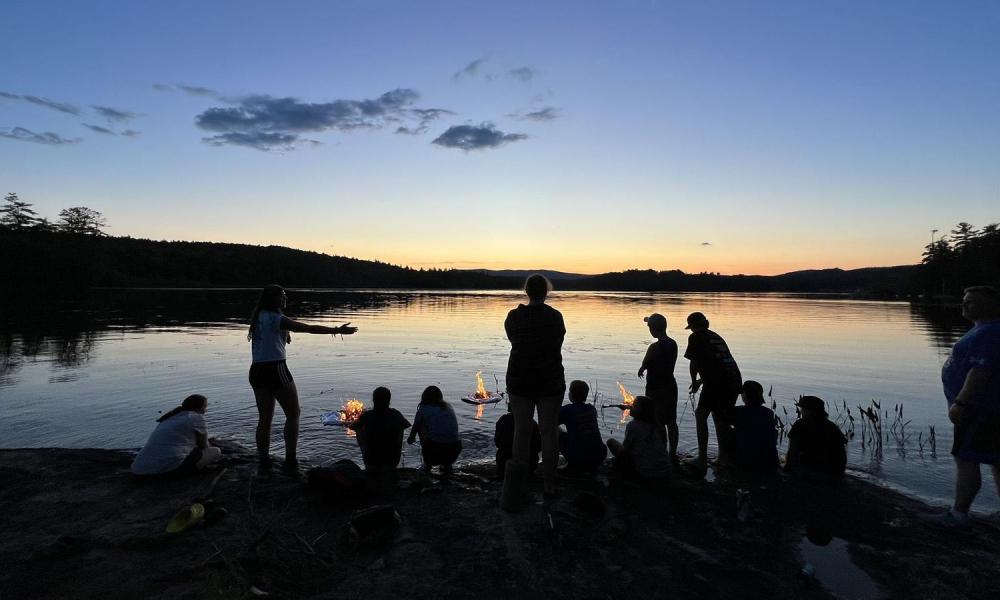Introduction to Summer Camps
Summer camps have long been cherished as a pivotal part of youth development, offering a break from traditional educational settings while providing a structured yet adventurous environment. Born in the late 19th century, the concept of summer camps initially sought to introduce urban youth to nature and the great outdoors, helping them develop physically and mentally away from the hustle of city life. Over the decades, this concept has expanded dramatically, giving rise to various camps catering to diverse interests, including science, art, technology, and culture. One significant evolution in the camp framework is integrating cultural exchange, which enriches the camper’s experience by exposing them to international perspectives. Programs like Summer Camp USA exemplify this trend by facilitating interactions between campers from different cultural backgrounds, thus fostering global understanding and acceptance. Participation in such camps provides children with first-hand experiences of cultural diversity, which is enlightening and essential in today’s rapidly globalizing world.
The Cultural Exchange Experience
Cultural exchange within summer camps is a transformative component that significantly enriches the camp experience. By bringing together youth from various parts of the globe, these programs promote cultural awareness and help eradicate preconceived stereotypes. Campers are introduced to different languages, traditional practices, and global cuisines, encouraging a deep appreciation and respect for other cultures. The benefits of cultural exchange programs extend beyond simple exposure. Participants often emerge from these programs with lifelong skills in cross-cultural communication and an enhanced global perspective. These attributes are incredibly valuable, fostering a more socially aware and empathetic generation towards international issues. The mutual exchange of ideas and the spirit of collaboration nurtured at such camps help create a safe and supportive environment where diversity is celebrated.
Lifelong Skills Developed
Beyond just fun and games, summer camps are instrumental in cultivating lifelong skills critical for personal development. The settings at these camps are uniquely designed to challenge campers and nudge them out of their comfort zones, thereby teaching resilience and adaptability. Activities structured around team building, leadership, and problem-solving provide an engaging and impactful hands-on learning approach.
Furthermore, the independent environment of camps helps foster self-reliance. Campers learn to manage daily tasks, make decisions, and solve problems without immediate parental intervention. This sense of self-sufficiency builds confidence, preparing young individuals to meet life’s challenges head-on. Many campers carry these essential skills into their academic and professional lives, often recalling their camp experiences as significant contributors to their personal growth and success.
Building Global Friendships
Summer camps provide a fertile ground for forging lifelong, global friendships, where barriers of language and geography are transcended through shared experiences. This form of social interaction is crucial in developing social intelligence and empathy. The bonds formed in these dynamic settings often result in friendships that endure long after the tents are packed up and campers return home. These global friendships are not just confined to personal networks but serve as bridges across different cultures. They enhance campers’ understanding of global dynamics and prepare them to participate better in an increasingly interconnected world. Such relationships provide a deep-seated understanding and appreciation for diversity, contributing to personal and collective growth.
Nurturing Leadership in Campers
Nurturing leadership potential is a critical aspect of the summer camp ethos. Camps offer activities specifically designed to inspire campers to lead and succeed. Tasked with responsibilities and roles that require initiative and creativity, campers are encouraged to take charge of their groups and projects. This environment allows campers to practice decision-making and critical thinking in real-world scenarios. Leadership tasks, such as organizing campfires or managing sports teams, provide opportunities to develop essential skills like conflict resolution and teamwork. By fostering these attributes, camps are pivotal in preparing youths to be leaders in their communities and globally.
The Role of Camp Counselors
Camp counselors are at the heart of every successful summer camp experience, serving as mentors, leaders, and role models. Their influence is profound, as they guide campers through daily activities, provide support, and ensure a nurturing environment. Counselors themselves often undergo a transformative journey, developing a more profound sense of responsibility and honing their skills in leadership and communication. The role of a counselor extends to being an empathetic listener and a problem solver, navigating complex interpersonal dynamics among campers. This experience is unbeatable, offering counselors a practical understanding of diverse social scenarios and preparing them for future life challenges. Their contributions are indispensable in creating an enriching and inclusive camp atmosphere where every camper feels valued and supported.
Economic Impact of Summer Camps
Aside from their social and educational significance, summer camps are vital economic engines that benefit local communities considerably. Camps provide seasonal employment opportunities, catering to counselors, administrative staff, and activity leaders, all contributing to the local economy by spending their earnings within the community.
Additionally, camps stimulate the economy by sourcing supplies locally, thus benefiting businesses in rural areas. The collective economic contribution of summer camps across the United States is substantial, supporting a wide range of industries from hospitality to retail. This underscores the significance of camps as a catalyst for economic and community development beyond their educational value.
The Future of Cultural Exchange Programs
The future of cultural exchange programs in summer camps seems bright, characterized by innovation and increasing inclusivity. As global connectivity increases, so does the interest in cross-cultural learning, making these programs an essential component of modern education. Camps continually evolve, incorporating new technologies and methodologies to enhance the cultural exchange experience. Challenges like economic fluctuations and travel restrictions remain, but the resilience and adaptability of camps are promising. By embracing virtual exchanges and integrating new educational technologies, camps are poised to navigate these challenges and continue providing enriching experiences that transform participants into global citizens. The core values of friendship, respect, and cultural understanding remain at the heart of these programs, ensuring they remain relevant and impactful for future generations.

